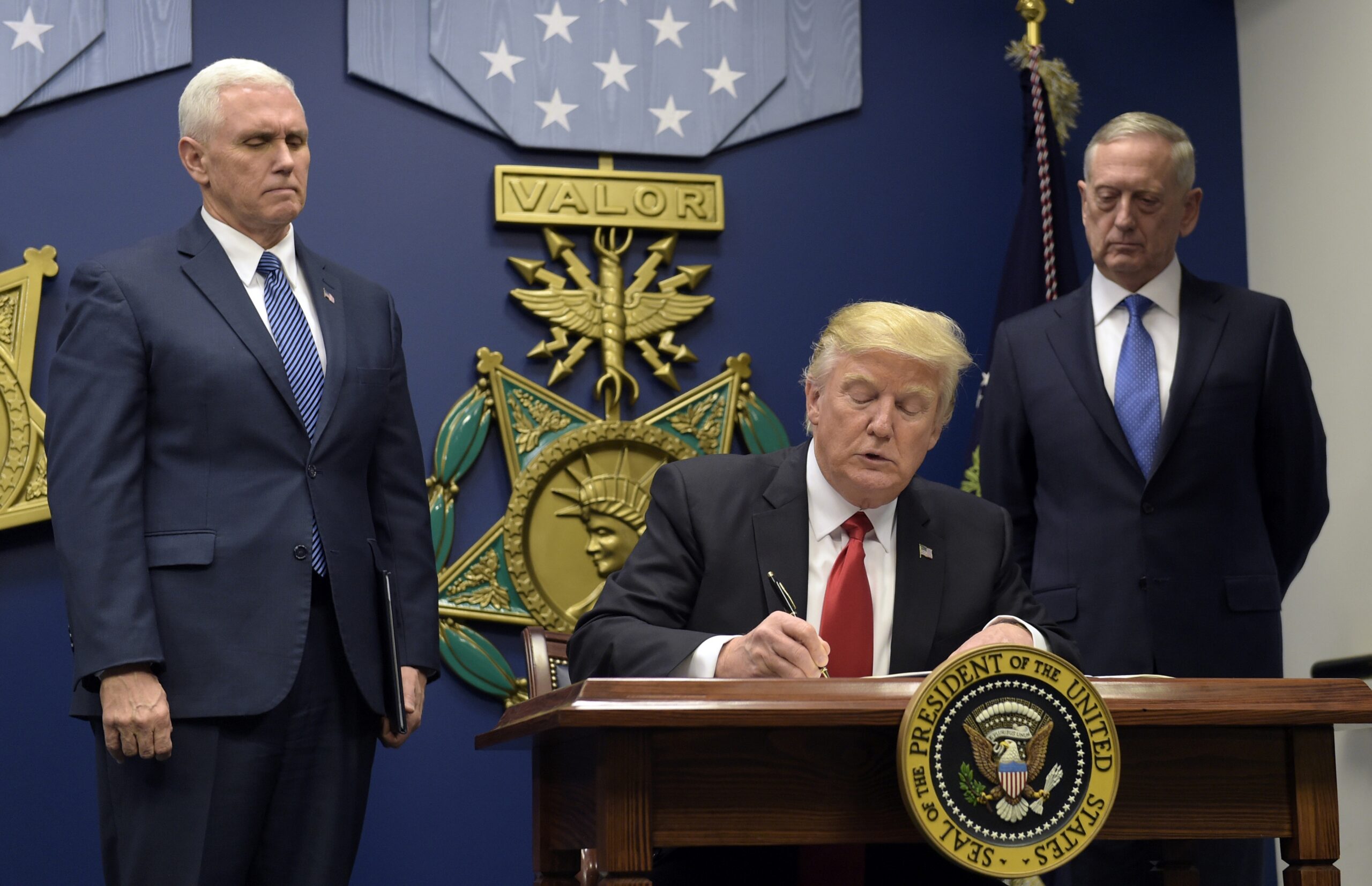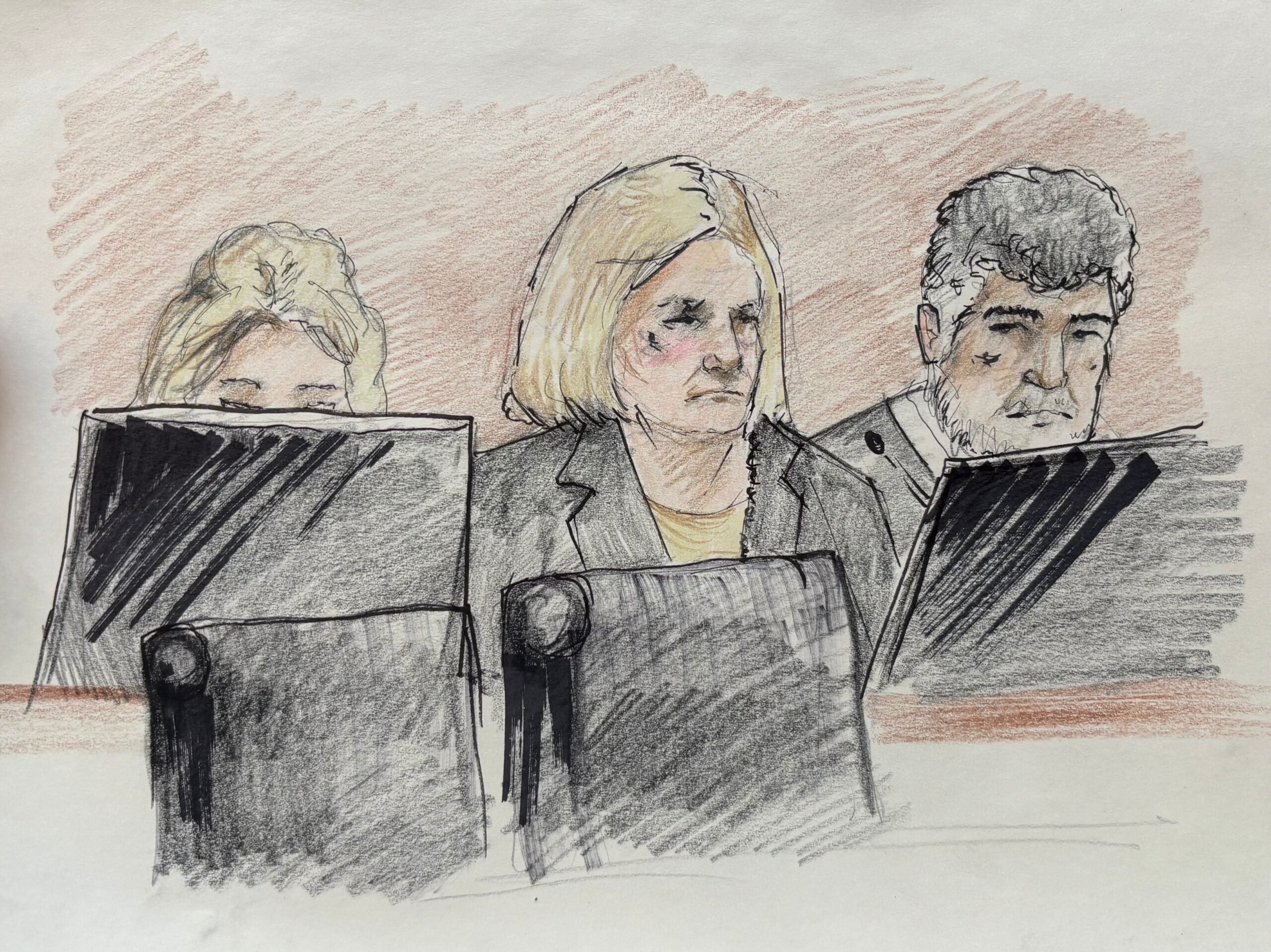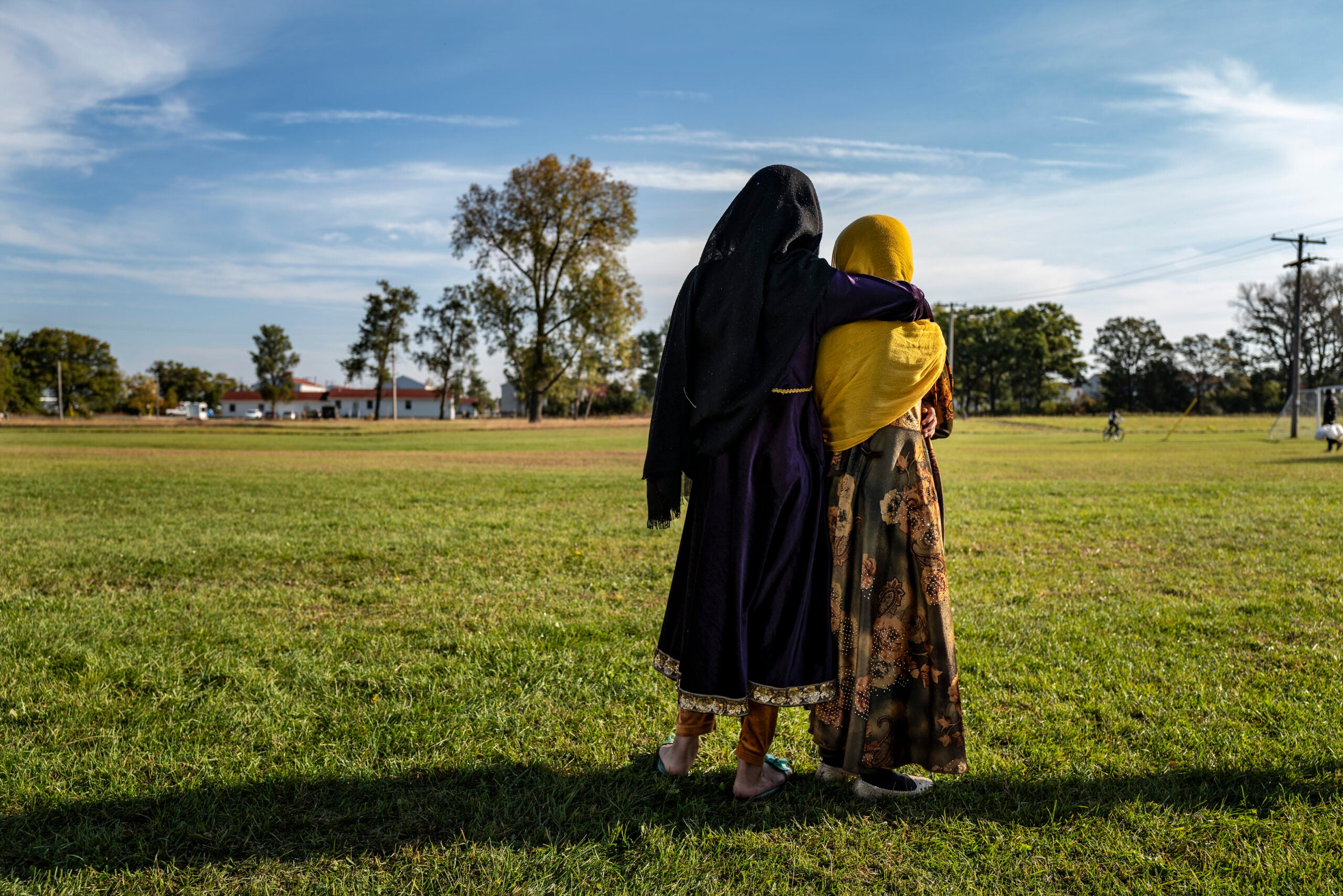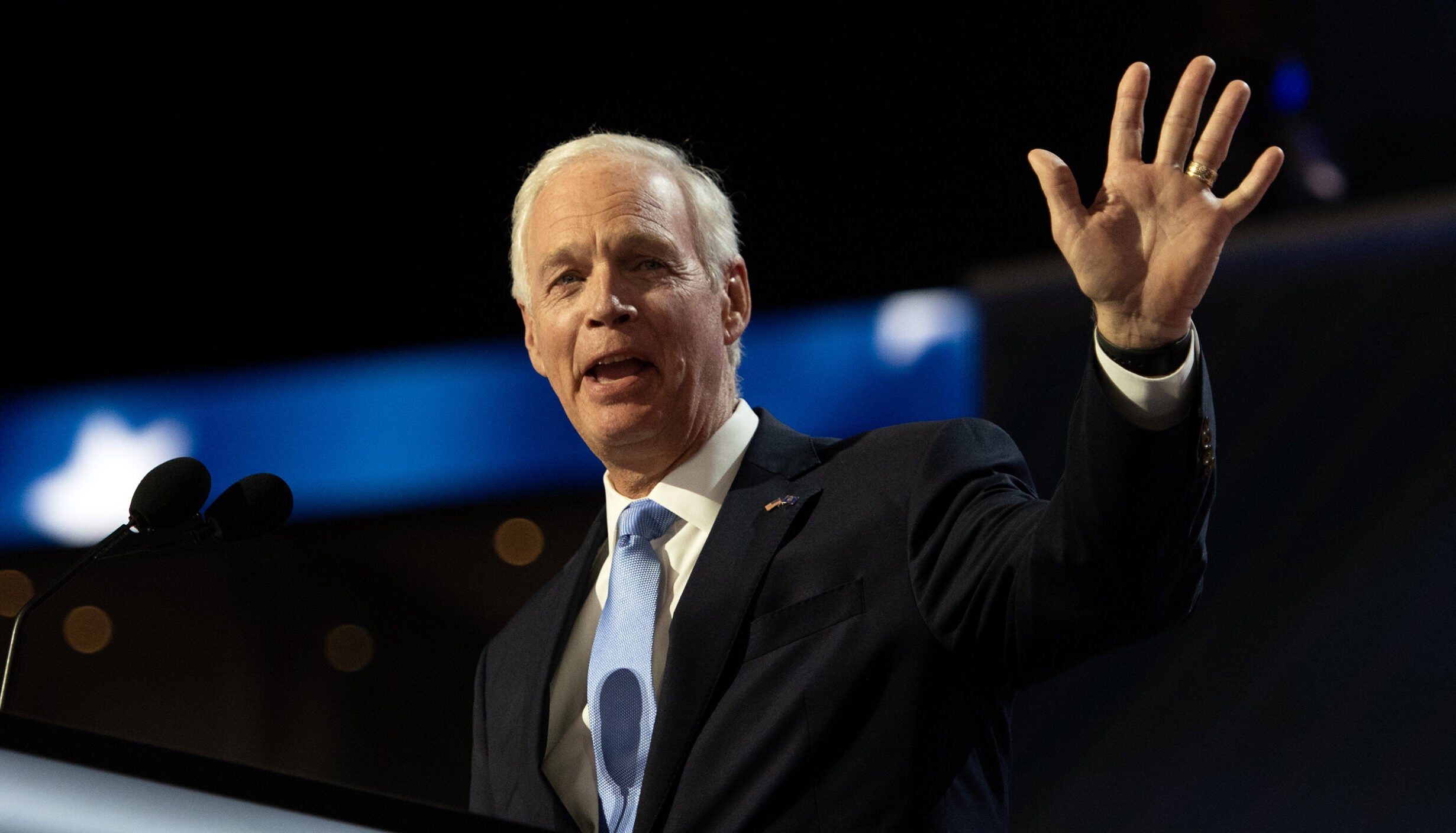Among Wisconsin’s elected leaders who have weighed in on President Donald Trump’s temporary immigration ban, opinions have split along party lines.
Many of the state’s Democratic representatives in Washington have been quick to rail against the contentious executive order. Meanwhile, Republican members of Wisconsin’s congressional delegation and GOP state officials have been slower to take a public position.
Signed Friday, the order bans all refugees from entering the country for 120 days and travelers from seven predominantly Muslim countries – Iran, Iraq, Libya, Somalia, Sudan, Syria and Yemen – for 90 days. The order also bars Syrian refugees from entering the country for an indefinite amount of time until the president determines sufficient changes have been made to the vetting process to ensure their entry is in line with the national interest.
News with a little more humanity
WPR’s “Wisconsin Today” newsletter keeps you connected to the state you love without feeling overwhelmed. No paywall. No agenda. No corporate filter.
House Speaker Paul Ryan, R-Janesville, was perhaps the first among Wisconsin congressional Republicans to come out in favor of the president’s action.
“Our No. 1 responsibility is to protect the homeland. We are a compassionate nation, and I support the refugee resettlement program, but it’s time to reevaluate and strengthen the visa vetting process,” Ryan said in a statement issued Friday.
But it wasn’t until Monday afternoon that Gov. Scott Walker came out in favor of Trump’s executive order, calling it “a safety issue.”
“A resettlement program to help refugees is compassionate and one that I support, but we should ensure we are doing everything possible to put the safety of our citizens first,” Walker said in a statement released by a spokesman.
Republican Sen. Ron Johnson of Oshkosh hasn’t yet commented publicly on the measures implemented Friday, nor has he responded to requests for comment from WPR.
At a Monday press conference, Wisconsin Attorney General Brad Schimel said his office was still assessing whether the executive order would have a direct impact on the state. He said the state Department of Justice would sue the federal government if they determined the order amounted to executive overreach.
“If there’s a negative impact to the state of Wisconsin and there’s an unconstitutional overreach by the president, sure,” Schimel said of a potential court challenge. “Just because we’ve changed presidents doesn’t mean I’ve lost my will to defend the state against the federal government when they overreach.”
Under Schimel’s leadership, the state DOJ sued the Obama administration numerous times for what Schimel called “executive overreach.” Those lawsuits included challenges to Obama’s orders about transgender bathroom use, overtime pay for workers and immigration policy.
Schimel said he will hold the Trump administration to the same standard, but declined to say if he agrees with the travel ban, which he called a “policy decision.”
“I’m not reluctant to sue the federal government when they exceed their authority, especially when they interfere with the autonomy of the states,” Schimel said. “However, on policy decisions where they don’t violate the Constitution and they don’t interfere with the state’s 10th Amendment autonomy, then I’m going to stay clear of it.”
The order sparked spontaneous protests across the country this weekend, including in front of Milwaukee’s federal courthouse.
U.S. Rep. Gwen Moore, D-Milwaukee, applauded those opposition efforts in a statement released Monday. She said many of her constituents have been asking what they can do to oppose the travel bans.
“I implore you to raise your voices and stand up against this injustice,” her statement read. “The men and women who sit in positions of power across our country must both hear and see your opposition, from their offices and town halls to their newsfeeds and inboxes.”
Protesters and some Democratic lawmakers characterized the travel bans as religious discrimination targeting Muslims. Rep. Ron Kind, D-La Crosse, called on Trump to suspend the order until Congress has time to review its contents.
“We cannot start discriminating based on religion. Instead of helping keep our country safe it will jeopardize our national security by giving ISIS and other terror groups another recruitment tool and making it harder for our allies in Muslim nations to work with us on counterterrorism operations,” Kind said in a statement issued Monday.
Several Republicans pushed back on that characterization. The White House issued a statement pointing out the travel ban applies to only seven countries while more than 40 countries worldwide are majority Muslim. Those seven countries were also flagged by the Obama administration for visa waiver restrictions.
At a Sunday night town hall, U.S. Rep. Jim Sensenbrenner, R-Waukesha, said he supports a change to implementation of the order made that day to exclude current green-card holders from the entry ban.
“In terms of the pause itself, it’s important to emphasize that this isn’t about religious affiliation, it’s about national security and keeping Americans safe,” he said in a statement. “This is a temporary ban so the government can ensure we have sufficient screening policies in place. While the majority of people seeking to enter the United States are peaceful, it only takes one individual to wreak havoc.”
Preventing that kind of havoc is what U.S. Rep. Sean Duffy, R-Wausau, seized on in his statement of support for the president.
“Radical Islamic terror groups like ISIS openly exploit the West’s refugee programs to incite or carry out acts of terrorism,” Duffy said in a statement Monday. “We deserve to know who enters or leaves our country, as well as their intent. President Trump is fulfilling a campaign promise to re-evaluate our visa vetting process so that the American people are safe from terrorism.”
But U.S. Rep. Mark Pocan, D-Madison, characterized the measures as jamming divisive political rhetoric that ignores the U.S. Constitution into the policy arena. He is cosponsoring a bill to block funding for the order.
“Across the United States, the people have spoken, marching in the streets and calling on their elected leaders to oppose these actions,” Pocan said Monday. “It is time for President Trump to stand up for our nation’s shared values and represent all Americans.”
Democratic U.S. Sen. Tammy Baldwin also came out against the executive order. Baldwin tweeted Sunday the ban would strengthen the Islamic State group, weaken counterterrorism efforts and cost lives.
Republican U.S. Rep. Mike Gallagher of Green Bay said in a statement Monday that the action was “prudent” and didn’t “amount to a blanket ban based on religion,” but added that it “could have been better handled by the administration and should have been closely coordinated with Congress.”
Gallagher’s House colleague Glenn Grothman, R-West Bend, also issued a statement Monday supporting the ban.
“Friday’s executive order is just another example of President Trump fulfilling his campaign promises,” the statement read. “Given terrorist concerns and the temptation of too many people to come here and never leave, I think President Trump is right to exercise some long-overdue caution.”
State Senate Minority Leader Jennifer Shilling, D-La Crosse, said the order “is jeopardizing American safety by pushing misguided, discriminatory, isolationist approach.” Meanwhile, the Legislature’s other party leaders – Assembly Speaker Robin Vos, R-Rochester; Rep. Peter Barca, D-Kenosha; and Sen. Scott Fitzgerald, R-Juneau – have not yet responded to requests for comment about the travel bans.
Editor’s Note: Reporter Laurel White contributed to this report.
Wisconsin Public Radio, © Copyright 2025, Board of Regents of the University of Wisconsin System and Wisconsin Educational Communications Board.





